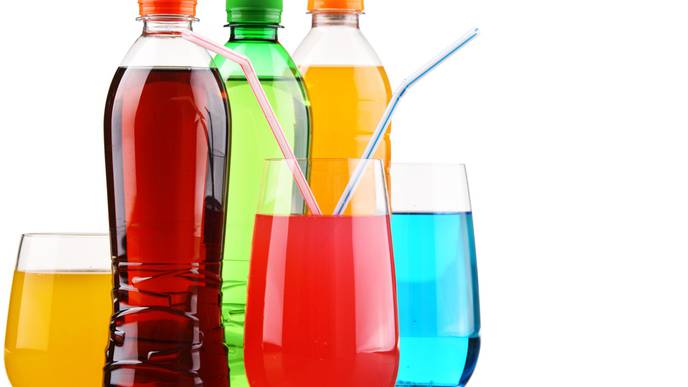Sugary Drink Tax Improves Health, Lowers Health Care Costs

04/20/2023
Oakland residents have bought fewer sugary beverages since a local “soda tax” went into effect, and that is likely improving their health and saving the city money, a new study by UC San Francisco and UC Berkeley found.
According to the study publishing April 18 in PLOS Medicine, purchases of sugar-sweetened beverages (SSBs) dropped 26.8% – compared to similar cities not subject to a tax – between July 2017, when the one-cent-per-ounce tax went into effect, and Dec. 31, 2019.
The research comes a little over a year after the National Clinical Care Commission (NCCC) – formed by Congress to advise on diabetes policy – recommended that legislators pass a national tax on sugar-sweetened beverages. California cities were among the first to adopt such taxes, but beverage industry lobbying led state legislators to prohibit cities and counties from imposing new taxes on SSBs in 2017, though existing taxes in Oakland, San Francisco, Berkeley and Albany were grandfathered in.
Voters now have evidence that allowing such taxes can yield significant benefits to society, and we hope that legislators at the state and national level act on these findings.
Past research has found consuming sugar-sweetened beverages is associated with a higher risk of obesity, type 2 diabetes and cardiovascular disease. Just last month, a UCSF study found that SSB taxes in five cities, including Oakland, significantly lowered the risk of diabetes and unhealthy weight gain in pregnant mothers. It also lowered the risk of having an overly small fetus.
“These latest results suggest SSB taxes can meaningfully improve diet and health and generate substantial cost savings over a sustained period of time, all of which support the case for a national tax on SSBs,” said Dean Schillinger, MD, UCSF professor of medicine, senior author of the study, and a co-chair of the NCCC. “The American Beverage Association cornered the California legislature into passing the law barring further SSB taxes in our state. Voters now have evidence that allowing such taxes can yield significant benefits to society, and we hope that legislators at the state and national level act on these findings.”
As of 2021, seven U.S. cities and more than 35 countries had SSB taxes in place in an effort to reduce the risk of diet-sensitive chronic disease and increase government revenue for health promotion.
More Cost-Effective than Smokefree Workplaces
The researchers compared sugary drink purchases in Oakland to purchases in nearby Richmond, California and Los Angeles, which have no beverage tax. They looked at consumer behavior in these cities in the 30 months before, then after, the tax went into effect on July 1, 2017.
They then used computer modeling to estimate how reduced SSB purchases affected community health, as measured by quality-adjusted life-years (QALYs) – a QALY being a year of perfect health. They also calculated the health care cost savings of preventing or controlling SSB-associated diseases, such as diabetes, heart disease, stroke and gum disease.
Consuming 26.8% fewer SSBs over 10 years added 94 QALYs per 10,000 residents and saved the city more than $100,000 per 10,000 residents in health care costs, the researchers found, with gains expected to increase over a lifetime. They found no evidence that consumers crossed borders to buy sugary drinks in neighboring untaxed locations, or that they substituted sweet snacks for taxed SSBs.
“Our estimates suggest this tax is at least as cost-effective as other widely recognized public health interventions such as smoke-free workplace policies and air pollution control measures,” noted first author Justin White, PhD, associate professor of health economics at UCSF’s Philip R. Lee Institute for Health Policy Studies.
Purchases declined in Oakland for all types of SSBs, including sweetened soda by 23.1%, fruit drinks by 30.4%, sports drinks by 42.4% and sweetened teas by 24.4%. Declines in purchases were similar for individual- and family-sized products, and similar in lower-income and higher-income areas.
“Studies of other U.S. cities have found similar reductions in SSB purchases as this one,” said Schillinger. “The sustained impact of Oakland’s tax is particularly important. It suggests that, were an SSB tax to be scaled nationally, our country would enjoy better health and lower health care costs.”
The current study may be an underestimate of the health benefits of the SSB tax, as the investigators did not account for the positive impacts of the local nutrition and public health programs funded by the tax revenue in Oakland, Schillinger added.
While previous studies found SSB taxes lead to fewer purchases and less intake of SSBs in the short term, this is among the first to examine sustained declines alongside other purchasing behavior, such as “substitute” purchases of sweet snacks, and the first to evaluate cost-effectiveness.
Authors: In addition to Schillinger and White, authors include Sanjay Basu of Waymark Health, Scott Kaplan of the U.S. Naval Academy Department of Economics, Scott Kaplan of University of California, Berkeley School of Public Health, and Sofia Villas-Boas of UC Berkeley Department of Agriculture and Resource Economics.
Funding: This work was supported by grants from the National Institute on Diabetes and Digestive and Kidney Diseases (R01 DK116852 and 2P30 DK092924), The California Endowment, the UCSF Diabetes Family Fund, and the Centers for Disease Control and Prevention’s National Center for Chronic Disease Prevention and Health Promotion (U18DP006526).
Disclosures: Please see the paper for a complete list of disclosures.

Facebook Comments